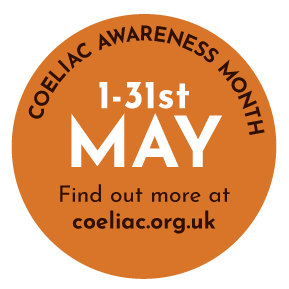
Hold the Gluten
We spoke to five key voices about the art of gluten-free catering...
The gluten-free market is growing
The gluten-free market is growing. And for customers with coeliac disease or a gluten intolerance – conditions that go way beyond a dietary choice. – the stakes of eating the wrong thing can be incredibly high. Impacting one in 100 in the UK, coeliac disease is described by the NHS as ‘a condition where your immune system attacks your own tissues when you eat gluten. This damages your gut (small intestine) so your body cannot properly take in nutrients.’
A range of symptoms are caused when someone with coeliac disease eats gluten and, once diagnosed, the medical advice to treat it is unequivocal: a lifelong gluten-free diet.
Non-coeliac gluten sensitivity, while less severe, still causes considerable discomfort and it’s estimated by charity Coeliac UK that around 10% of UK consumers now follow a gluten-free diet.
“I tend to do a lot of research before I
eat somewhere,” says Kelly Meacham, who was diagnosed with coeliac disease 12 years ago. “I used to get sad about people’s lack of knowledge, but now it fuels my fire. After all, if the chef gets things wrong, I will be extremely ill.”
While catering safely for this significant audience presents a practical challenge for caterers, it’s also an opportunity to showcase menus that are as much about inclusivity as they are about taste.
“Just having a choice means so much,” says Kelly. “When there are several options, nothing makes a coeliac happier!”
We turn to five experts to find out how they are navigating the UK’s increasingly insatiable gluten-free appetite.
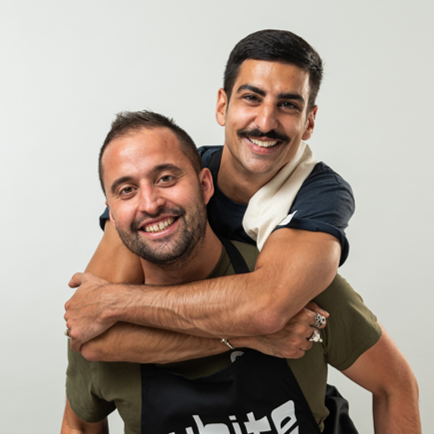
White Rabbit Pizza
““In a gluten-free kitchen, there are strict procedures around cross-contamination and labelling. We’re a dedicated gluten-free bakery, so not only do we have to be very strict with what goes in and out of our site, but also incredibly diligent with our suppliers and the processes they use to keep incoming ingredients as risk-free as possible.
To anyone looking to expand their menu – don’t underestimate the power of having high-quality gluten-free options. You aren’t only losing the person avoiding gluten if you don’t, but the family and friends they eat out with. Don’t just fill a hole with a compromised solution; take time to find a product that won’t damage your brand or do a disservice to the quality of everything else on your menu.
Gluten-free isn’t going anywhere – we only see it getting more sophisticated; with higher-quality ingredients and more bespoke processes leading to better and better food.”
Founders: Nick and Tio - whiterabbitpizza.co.uk
Exploding Bakery
““All our best-selling cakes cater for at least one dietary requirement. The key thing for us is to make a great-tasting cake first, rather than setting out to make something vegan or gluten-free. Our brownies are made with ground almonds rather than flour, which makes them gluten-free, but it’s primarily because it just tastes so much better!
The main challenge is achieving the same texture. In a gluten-free cake, you’re working without the proteins you’d usually have in flour. Be open-minded, as the ingredients list might look quite different. Vegetables are a great way to introduce extra moisture and flavour. Our Sour Cherry Polenta & Pistachio Cake is a really good example of using fruits and nuts for texture in a gluten-free cake. Dietary cakes have come such a long way – and as the quality improves, customers that don’t have a dietary need are now happy to buy a gluten-free or vegan cake.”
Tom Litten, Head of Sales - explodingbakery.com


London Borough of Havering Education Services
“We need to strive to be more inclusive, especially in school catering. We do a gluten-free offer and for coeliac disease we create a separate meal plan. We work with dieticians to provide all the necessary nutritional data and composite ingredient make-up required.
To ensure kitchen safety, staff are trained in Food Safety Level 2 and Allergen Awareness and the gluten-free dishes are delegated to one kitchen staff member to mitigate cross-contamination. Also, we ensure separate storage of ingredients with clearly marked labelling. I think that there is a pendulum shift towards foods that are kinder to the environment. These products are mostly plant-based, which also may contain less allergenic ingredients. As special diets become more mainstream it may also reduce the need to have separate menus.”
- Sesh Reddy, Executive Training and Development Chef
Gluten Free Cuppa Tea
“If you really want to do gluten-free well, the options shouldn’t just be ‘the regular menu minus all dishes that contain gluten’ – that’s the most common mistake I see. It eliminates one of the most exciting parts of dining out: choice. The second really common mistake is just removing the gluten-containing elements of a dish instead of creating a gluten-free equivalent – think fish and chips without any batter, or eggs Benedict without a muffin.
Since I started my blog back in 2013, the demand for gluten-free information and recipes has snowballed every year. In my opinion, it’s not to do with a gluten-free diet being ‘popular’ or not; it’s to do with improvements in diagnosing coeliac disease and non-coeliac gluten sensitivity, as well as a more general awareness that the conditions exist.
My most popular recipe has been the same for years – it’s for Yorkshire puddings – it’s so simple and doesn’t require any specialist gluten-free products, just cornflour, eggs and milk. I’ve been served so many roast dinners without Yorkshire puddings that I’ve completely lost count... and I know I’m not alone in experiencing that!
In the future, I believe that restaurants will either make all the dishes on their menu gluten-free, or greatly minimise gluten-containing ingredients – something I’m already starting to see more of. Finding that happy medium where food can be made gluten-free at little to no extra cost, where ‘normal’ people don’t even notice and gluten-free eaters can be conveniently catered for, is most definitely the future of gluten-free cooking.”
Becky Excell, Best-Selling Author and Gluten-Free Food Writer - glutenfreecuppatea.co.uk

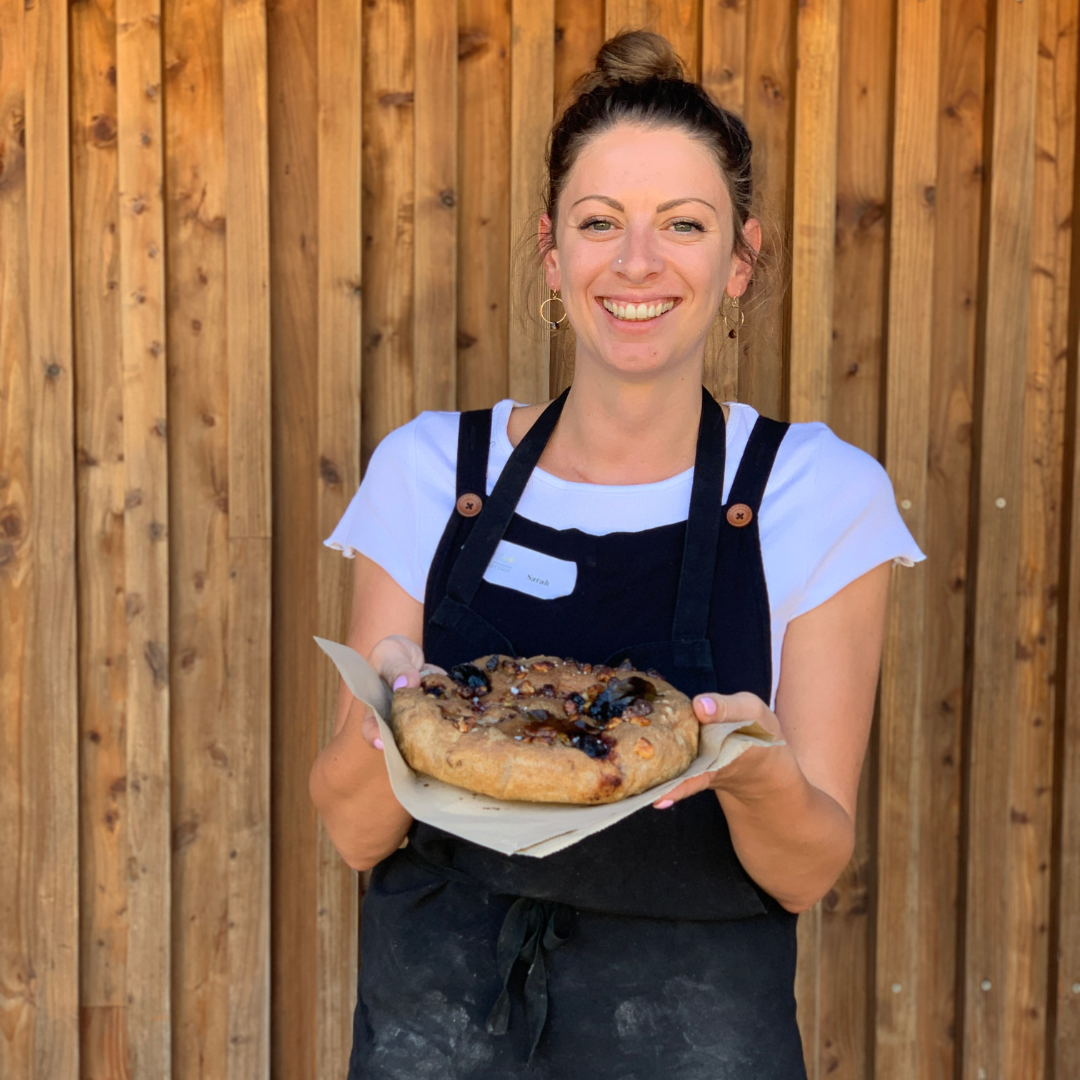
"Delicious Gluten-Free Meals" & "The Gluten-Free Blogger"
“As someone with coeliac disease, I don’t just have to avoid eating gluten-containing foods; I have to also be very careful of cross-contamination. Just a crumb of bread can leave me feeling unwell for days – some people even end up in A&E with their symptoms. And the long-term complications of repeatedly ingesting gluten can lead to osteoporosis, infertility and even bowel cancer.
My biggest frustration is when caterers don’t understand the risk of cross-contamination. I’ve lost count of how many times I’ve been told false things like ‘heat kills gluten’ by chefs. A gluten-free menu is not truly gluten-free if the food is not prepared in a way to avoid cross-contamination. For example, frying gluten-free chips in the same oil as gluten-containing foods is not safe for someone with coeliac disease.
I really hope that as awareness grows, more and more caterers will see that catering for people with dietary needs is not as daunting as they think. I’ve had some incredible experiences dining out – we adore those who make the effort to cater for us. To someone with coeliac disease or specific dietary requirements, being able to eat a worry-free meal out just means the absolute world. And we will not only return, we’ll be telling every single other gluten-free person we know about it too!”
- Sarah Howells, Author - theglutenfreeblogger.com
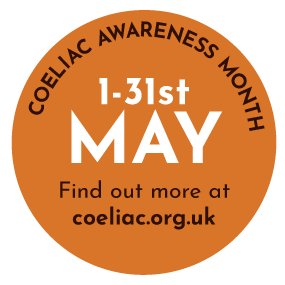
Coeliac Awareness Week
15-21 May
For this year’s Coeliac Awareness Week we want to highlight the lesser known symptoms of coeliac disease to help people join the dots on their range of symptoms and ask ‘is it coeliac disease?’

